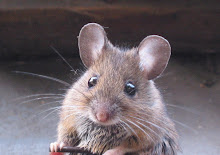It is entirely possible that Neil Gaiman is a genius - either that or he is extremely unbalanced, which is not mutually exclusive, I realize. I come to this revelation having recently watched Mirrormask, a gloriously trippy movie written by Gaiman and directed by David McKean. A quest story along the lines of The Wizard of Oz and Alice’s Adventures in Wonderland, this Jim Henson Company collaboration is an incredible fusion of live actors, puppets and CGI, so interwoven that at times – most times – it was difficult to tell one from the other.
Teenaged Brit Helena is a performer in her parents’ little traveling circus. Although the circus is shown as a dazzling place, infused with color and warmth, Helena is sick of it and just wants a normal life. One evening she has a fight with her mother who later collapses and is rushed to the hospital with a brain tumor. Helena spends days stuck in a dreary flat, covering her bedroom walls with fantastical pen and ink drawings and waiting for word on her mum’s condition. On the night her mother goes into surgery, Helena is restless and seemingly unable to sleep, sick with guilt over the nasty things she said to her mother. She hears music and wanders out into an alleyway that leads her into another world.
Convinced she is dreaming, Helena is unafraid of what she finds: bizarre and yet friendly people and creatures – all wearing masks - lurching and scuttling out of startling landscapes, going busily about their days. She meets a young juggler named Valentine who is initially put off by the fact that she does not wear a mask like the rest of the populace (“How do you know what expression to wear without a mask?”). He warms to her, however, when he learns she too can juggle and they set off together. Helena is soon captured by the White Queen’s people who fill her in on the current situation: this land she has wandered into, which is divided into Light and Dark, is now unbalanced because the Dark Princess (a twin of Helena) stole the balancing charm which sent the White Queen into a magical sleep, allowing the Dark to encroach upon the Light unimpeded. Helena, who likes to be useful, decides that her quest will be to retrieve the charm and restore balance to the lands.
During the course of Helena’s quest, she meets all kinds of fantabulous creatures: flying books that sulk if you give them a bad review; riddling sphinxes; floating stone giants; creepy, skittering one-eyed spiders who are spies for the Dark Queen; doppelgangers (both the evil Dark Queen and the comatose White Queen look like Helena’s ailing mother; the prime minister looks like her dad); and my favorites, a flock of Bobs (and one Malcolm) who seem to be a cross between gorillas and pigeons. The creatures and the landscapes are twisted marvels, all angles that don’t make sense and patchwork body parts. Nothing is nightmarish in that Helena (and likewise the viewer) is never really scared; everything is nightmarish in that this is clearly nowhere normal. Gaiman’s boundless imagination is lovingly interpreted and rendered by the production staff. The acting isn’t much to write home about but the sheer spectacle of the whole is wondrous.
After watching the entertaining but decidedly low-budget Neverwhere a while back, I was slightly skeptical about delving deeper into Gaiman’s catalog, anticipating more charming amateurishness. I needn’t have worried: the production values for Mirrormask have skyrocketed in comparison to little Neverwhere and this film is a sight to behold. I would venture to say that Mirrormask is a must-see for fantasy-lovers and I am planning to hurry to my comics shop to see if the book version is as much of a treat as the movie. But first I’m going to watch this very cool flick again.
1 hour ago






No comments:
Post a Comment